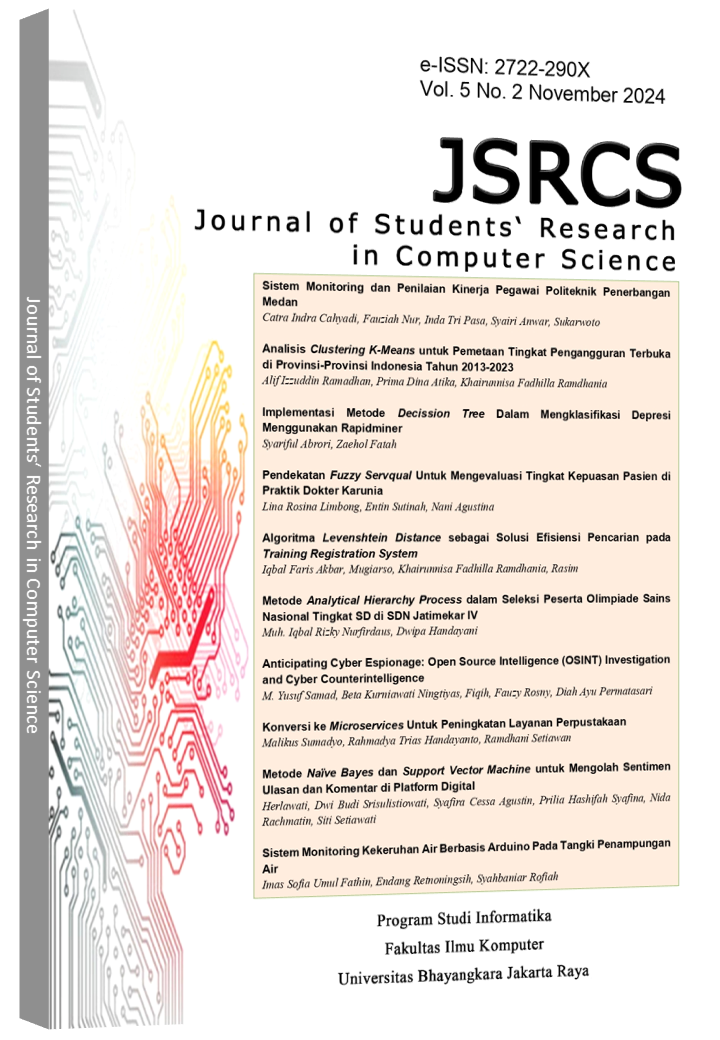Metode Naïve Bayes dan Support Vector Machine untuk Mengolah Sentimen Ulasan dan Komentar di Platform Digital
DOI:
https://doi.org/10.31599/dby15h32Keywords:
Sentiment Analysis, Social Media, Support Vector Machine (SVM), User ReviewsAbstract
This study analyzes sentiment from user Reviews of the FLO app, Taman Mini Indonesia Indah (TMII), and public comments on infidelity cases on Instagram, using Naïve Bayes and Support Vector Machine (SVM) algorithms. FLO, an app that helps users track reproductive health, was analyzed based on 1,393 Reviews on Google Play Store. Of these, 796 Reviews expressed positive sentiment, while 597 were negative. Although both Naïve Bayes and SVM achieved an accuracy of 74%, SVM performed better in recall (74%) and precision (71%). For TMII Reviews, the analysis involved 1,616 Google Reviews, with 1,263 showing negative sentiment, indicating complaints about facilities and services, and 353 expressing positive sentiment. SVM outperformed Naïve Bayes, achieving an accuracy of 85% and an f1-score of 87%, compared to Naïve Bayes’ 82% accuracy and 83% f1-score. Additionally, the analysis of 1,200 public comments on Instagram accounts @lambe_turah and @awreceh.id revealed 918 negative comments and 282 positive ones. SVM once again demonstrated superior performance with an accuracy of 91%, precision of 87%, recall of 96%, and an f1-score of 92%, surpassing Naïve Bayes, which achieved an accuracy of 86%. These findings confirm that SVM is more effective for sentiment classification across various digital Platforms, including social issues and service evaluations. The results can be applied to develop public opinion analysis systems that support strategic decision-making and enhance service quality based on user feedback.












_-_Copy1.jpg)

